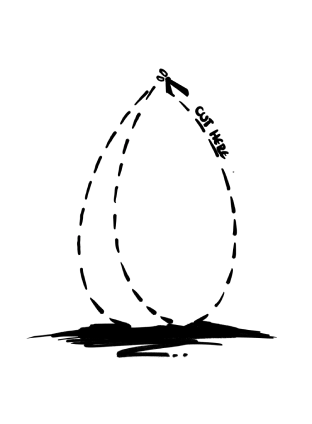“The best way I could describe the effect of the marijuana and hashish is that it would make me relaxed and creative.”
Steve Jobs.
The idea that cannabis enhances creativity has permeated pop culture. Although recreational cannabis use is currently only legal in a handful of countries and U.S. states, it has become increasingly common for artists, business leaders, and other celebrities to suggest that marijuana has aided in their creative pursuits. But does pot actually make you more creative? Or does it just make you think you’re being more creative?
As academic researchers focused on workplace behaviors and performance, we have conducted numerous studies related to different factors that can influence employees. But research on the impact of cannabis in the workplace is still fairly limited, and so we were curious to explore how using weed at work might be affecting employees and organizations.
To that end, we conducted two studies with a total of more than 300 cannabis users in Washington State, where recreational use is legal. It’s worth noting that due to ethical and regulatory constraints, we were not able to ask participants to use cannabis, as we might when testing the impact of other workplace behaviors. Instead, we recruited participants who already used cannabis a few times a week — which we determined with both self-reports and drug tests — and then had them complete various creative tasks in their natural settings, under the influence of their natural types and amounts of cannabis.
Specifically, the participants did one of two creative tasks, either within 15 minutes of vaping or smoking a joint or at least 12 hours after their last use: In our first study, we simply asked them to list as many creative uses for a brick as they could (a task that is commonly used in creativity research). In our second study, to more closely replicate a workplace task, we had them imagine they worked for a consulting firm that had been hired to help a local music band increase revenue, and again we asked them to generate as many creative ideas as possible. We then asked both the participants themselves and a variety of external judges, including research assistants, other participants, and subject matter experts, to evaluate the creativity of the ideas.
So what did we find? On average, high participants experienced more joviality — that is, they felt happier, more cheerful, and, simply put, in a better mood — and this led them to evaluate both their own ideas and those of other participants as more creative than sober participants did. However, the third-party judges reported no difference in the creativity of ideas that had been generated by high participants and by sober ones. In other words, cannabis doesn’t impact your actual creativity one way or the other, but it does boost joviality, making you think that both your own ideas and other people’s ideas are more creative than they really are.

This may seem counterintuitive. After all, prior research has shown that in other contexts, joviality can increase creativity, because it makes people more flexible and openminded. But in our studies, we found that at least when it comes to weed-fueled joy, joviality largely appears just to boost how creative ideas seem — not the ability to produce objectively creative ideas.
Of course, these findings are hardly a condemnation of cannabis. Our research suggests that partaking doesn’t help or harm people’s creativity, and so for employees in roles focused on generating creative ideas, occasional pot use may not be problematic. However, the effect of weed on people’s ability to reliably evaluate creative ideas does imply a potential downside to workplace usage: If you are a manager or project leader tasked with evaluating creative ideas (whether your own or those of your colleagues), being high might make you more likely to overestimate an idea’s merit. So for these roles, sobriety may be beneficial.
Ultimately, as with any complex workplace issue, navigating weed at work calls for a nuanced approach. As more states and countries legalize cannabis (and as the prevalence of remote work potentially makes it easier for employees to use it on the clock), organizations may need to reevaluate blanket bans, mandatory drug testing, and other attempts to fully bar consumption. Especially when it comes to roles focused on the generation rather than evaluation of creative ideas, our research suggests that prohibiting pot may be an unnecessary infringement on workers’ lives. On the other hand, for work that requires clear-eyed evaluation of creative options, organizations may stand to benefit from implementing policies that respect personal freedom while encouraging employees to stay sober.
Most importantly, leaders must remember that the science linking cannabis use and work outcomes is still new and evolving. Researchers have started to explore whether cannabis can alleviate anxiety, depression, and other mental health issues, and their early-stage findings have been mixed, with studies suggesting that cannabis may potentially both help and harm users’ psychological and physical wellbeing. Research specific to workplace outcomes has also shown that beyond its impact on people’s ability to evaluate creativity at work, cannabis use may come with many other potential downsides, including poorer task performance, reduced organizational citizenship, and other counterproductive behaviors. And even when it comes to creativity, it’s important to note that our study is only a first step, and that more research is no doubt required to fully understand the complicated effects of cannabis use on different kinds of creative endeavors.
That said, it is clear that at least some commonly held beliefs about the effects of cannabis on creativity, perpetuated by the likes of Steve Jobs and Lady Gaga, may not hold true for everyone. It’s up to managers to ensure that their decisions and rules related to cannabis use are informed not by pop culture or out-of-date assumptions, but by the latest developments in this nascent scientific field.
Source: hbr.

